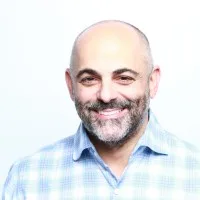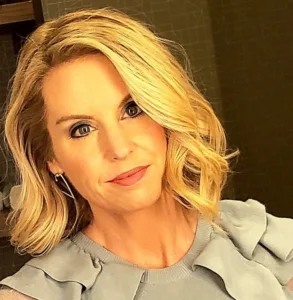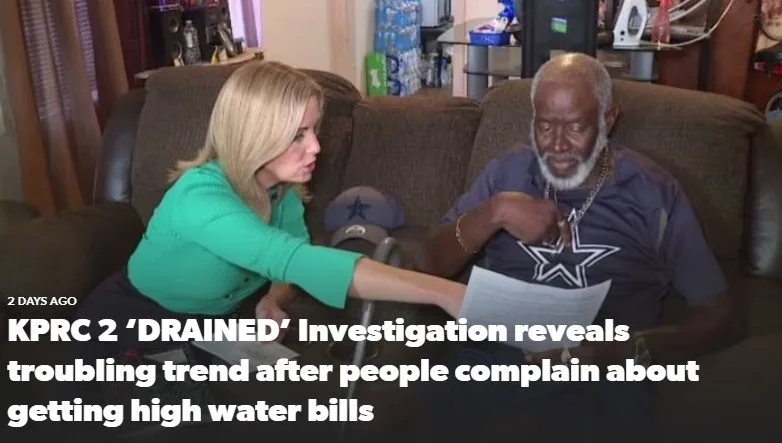In a breaking news market like Houston, KPRC’s in-depth investigations stand out. “It’s stories not everyone can commit to doing,” says Natalia Vasquez, the creative director at KPRC.
Investigative reporting on local TV news routinely focuses on non-breaking news stories. Phone calls are made, emails exchanged, on-camera interviews recorded, information gathered. The story is written including quotes from people interviewed. The package is edited and is typically ready to air that day.
But some investigations are too involved to be completed in a day. These in-depth investigations take time and resources and may lead to multiple followup stories.

Natalia Vasquez, the creative director at KPRC, Graham’s NBC affiliate in Houston, says its investigations “are huge for us because [they are] stories not everyone can commit to doing.”
Especially in a breaking news market like Houston.
“We really want to make sure that we are standing out and giving our community what they are asking us for,” Vasquez says.

Aaron Fernandez-Wische, KPRC’s assistant news director, says “speaking up for the little guy are all things that we really value here. Holding powerful leaders accountable, listening to the communities is really one of the fundamental things that we should be doing as a local news organization. The fact that hundreds of people have reached out to us says that the community is responding, and that kind of work is valued.”
Vasquez says the Houston community has told KPRC they want stories about scams, frauds, rip-offs, violence in their community and crimes against home and property.
And having a dedicated investigative team to cover those stories that matter to KPRC’s target demo and to the community is why the station strives to do results- and solutions-based investigative journalism, she says.
But it’s not always easy or quick. And it can be frustrating, requiring patience and dogged determination.
Like the stories in the “Drained” series.

About a year ago, KPRC’s investigative team began getting emails from Houston residents complaining about a sudden and dramatic increase in their water bills.
“All of a sudden somebody gets a $4,000 water bill,” says Amy Davis, an investigative reporter for KPRC. The average monthly water bill in Houston is less than $100.

Ana Victoria Lastra, KPRC’s investigations executive producer, says they began getting flooded with emails from people about water bill issues, “from like one or two to like a couple hundred within like a month.”
In the most egregious case, the city charged a woman $39,000 for water usage in an unoccupied home.
When Davis noticed the uptick in the number of water bill problems, she reached out to Houston’s water bill department.
“We were getting very few answers,” Davis says. “They never would do an on-camera interview.”
As the investigative team gathered information and built a database, the biggest issue was “a lack of transparency from the city and lack of response for these customers who were just left drained financially and emotionally,” Lastra says.
Lastra says the city “never answered any of our questions as to how this could happen.”
Emails went unanswered or they promised a response, “but we just never hear back,” Lastra says.
The city did have a phone number people could call about their water bills, but there were hurdles.
It took almost six weeks for the city to return the phone calls.
“I mean, six weeks just to call somebody back and acknowledge that you have received their call to me sounds like a pretty big delay in helping people,” Davis says.
Davis had been requesting interviews with the mayor and the director of public works, but she was told they were too busy and unavailable.
It was time to turn up the heat.
Davis cornered the mayor at a public function. One of the mayor’s handlers promised an interview with the head of public works if Davis didn’t confront the mayor in public.
Davis got the interview but over the months, all she got from city hall was “a lot of excuses.”
Since KPRC started investigating the water bill problem, it has aired dozens of stories, and more are planned for November. “The ‘Drained’ series is something that we keep coming back to because this problem has not gone away,” Vasquez says. “We are coming up on a year and we want to see this resolved. If it’s not us, who else is holding these people accountable?”
Jobs Posted To TVNewsCheck
CLICK HERE to see jobs posted to TVNewsCheck’s Media Job Center including openings for a sales manager, executive news director, evening anchor/managing editor, promotion manager and broadcast maintenance technician.





Comments (0)
Reader Interactions